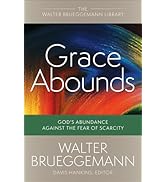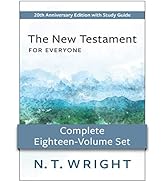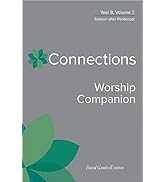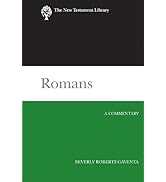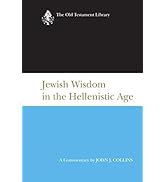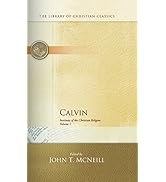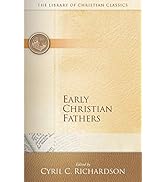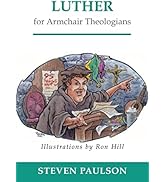Buy new:
-72% $4.99$4.99
FREE delivery Saturday, March 1
Ships from: ChandraMoon Sold by: ChandraMoon
Save with Used - Very Good
$1.83$1.83
$3.98 delivery March 1 - 3
Ships from: glenthebookseller Sold by: glenthebookseller

Download the free Kindle app and start reading Kindle books instantly on your smartphone, tablet, or computer - no Kindle device required.
Read instantly on your browser with Kindle for Web.
Using your mobile phone camera - scan the code below and download the Kindle app.

Follow the author
OK
Christian Worship: Glorifying and Enjoying God (The Foundations of Christian Faith) Paperback – October 1, 2000
Purchase options and add-ons
This second book in the Foundations of Christian Faith series explores such questions as, who cares about worship? what are the meanings for contemporary Christians of worship and the sacraments? what motivates people to worship God? and what constitutes meaningful worship today?"
The Foundations of Christian Faith series enables readers to learn about contemporary theology in ways that are clear, enjoyable, and meaningful. It examines the doctrines of the Christian faith and stimulates readers not only to think more deeply about their faith but also to understand their faith in relationship to contemporary challenges and questions. Individuals and study groups alike will find these guides invaluable in their search for depth and integrity in their Christian faith.
- Print length112 pages
- LanguageEnglish
- PublisherGeneva Press
- Publication dateOctober 1, 2000
- Dimensions5.5 x 0.29 x 8.5 inches
- ISBN-100664501362
- ISBN-13978-0664501365
Book recommendations, author interviews, editors' picks, and more. Read it now.
Frequently bought together

Similar items that may deliver to you quickly
From the brand

Westminster John Knox Press
Book series for group study, preaching, theology, biblical studies, and more!
-
Browse Group Study Series
-
Browse Preaching Series Books
-
Browse Biblical Studies Series
-
Browse Theology Series books
-
Browse Group Study Series
Editorial Reviews
About the Author
Product details
- Publisher : Geneva Press; First Edition (October 1, 2000)
- Language : English
- Paperback : 112 pages
- ISBN-10 : 0664501362
- ISBN-13 : 978-0664501365
- Item Weight : 6.4 ounces
- Dimensions : 5.5 x 0.29 x 8.5 inches
- Best Sellers Rank: #2,815,085 in Books (See Top 100 in Books)
- #1,251 in Worship Sacraments
- #1,973 in Christian Institutions & Organizations (Books)
- #3,807 in Christian Rites & Ceremonies Books
- Customer Reviews:
About the author

Ron Byars grew up in Nebraska. He served as pastor of congregations in Fremont, Allen Park, Okemos, and Birmingham, Michigan; and in Lexington, Kentucky. He has served both as a member and as chair of the Kentucky Commission on Christian Unity. In 1999 he joined the faculty of Union Presbyterian Seminary in Richmond, Virginia. From a position in Chancel and Pulpit, he moved primarily to a place in the pew. He writes as one whose view has been shaped from the perspective of congregational life. He continues to write in retirement, living now in Lexington, Kentucky.
Customer reviews
Customer Reviews, including Product Star Ratings help customers to learn more about the product and decide whether it is the right product for them.
To calculate the overall star rating and percentage breakdown by star, we don’t use a simple average. Instead, our system considers things like how recent a review is and if the reviewer bought the item on Amazon. It also analyzed reviews to verify trustworthiness.
Learn more how customers reviews work on AmazonTop reviews from the United States
There was a problem filtering reviews right now. Please try again later.
- Reviewed in the United States on February 20, 2016Awesome. Well written and easily understood of true worship
- Reviewed in the United States on July 30, 2019Ok
- Reviewed in the United States on August 8, 2001Byars makes a brilliant case that "Fully Christian Worship must bring the Sacrament alongside the Word" (2000:100). Christian Worship is one volume of the Foundations of Christian Faith series published by the Presbyterian Church U.S.A. Its appeal is, however, not limited to Presbyterians. This relatively short book is helpful to Christians of all denominations. Byars begins by asking, "What's the point?" Why do people worship? He next explores the shape of Christian worship. He describes the distinction between tradition and traditionalism. Byars embraces Christian worship traditions rooted as far back as the Jewish synagogue. He suggests that Christians should utilize the traditions of word and sacrament, use their minds, but also respect the mysteries of faith. These traditions must, of course, be adapted to contemporary circumstances. In a brief historical review, Byars demonstrates how Roman Catholicism, strong on sacraments, gradually drifted away from the ministry of the word. He also shows that Protestantism, while strong on the ministry of the word, drifted away from sacraments. He argues, both Catholics and Protestants are moving toward restoring both word and sacrament in their worship. Byars is not stuck on a rigid of definition of sacrament. He appreciates the Orthodox use of the word "mystery". He writes: "Something is sacramental when it becomes a means by which Jesus Christ, in his life, death and resurrection, becomes manifest to his people" (2000:92). He helpfully discusses Baptism and the Lord's Supper. Byars closes by considering where the church is heading. He asks critical questions about seeker worship. Christian Worship is a timely, readable book that seeks to restore the importance of both word and sacrament to worship. I recommend it.
- Reviewed in the United States on April 19, 2015I bought for a preaching class. It was very helpful.
- Reviewed in the United States on July 26, 2001Christian Worship, Glorifying and Enjoying God, by Ronald P. Byars is packed with information about the development of Christian worship from its Mediterranean inception to a world-impacting religion of the twenty-first century. Byars conveyed the Christian commitment to Word and Sacrament noting times of persecution, decadence, and cynicism and times of renewal, reformation, and re-commitment. Byars concluded with this definition: 'Worship that is identifiably Christian must be scriptural, oriented towards hope, serious about praying for and serving the world outside our (Christian) doors, and confident that God is in charge' (112). The catholicity expressed in this definition made for a sense of 'time well-spent' with this book. Byars' literary style is a study in itself. It is vigorous, economic, astute, considerate, ecumenical, and politically correct. One finishes reading the book with a sense of joy at having been invited to share in a conversation with a Christian friend who has read widely, reflected deeply, and written about a complex subject in a deceptively simple way. Highlights sprinkled throughout the text provoke the reader to think with the author even as he inevitably draws one toward deeper reflective understandings. In Chapter 1, 'What's the Point?' Byars wrote: 'In worship, we gather in the presence of One who was before us; who will be after we are gone; and who, despite our smallness and the brevity of our lives, invites us to some kind of relationship' (5). Another way of expressing this same thought is that our 'infinite little' is drawn toward His 'Infinite Much'. Byars continued with this comforting thought: 'The whole thrust of Jesus' presence and activity among us was to say that God hasn't finished with the world yet' (12). Byars' rhetorical question: 'Can we measure God's work among us with some kind of electronic measuring device?' (16), is immediately answered: 'Of course not' (16). The point is that Christian worship is rooted in Christ because he chose us and is not finished with us yet. Byars traced the form of Christian worship from its Jewish roots in the synagogue and with the meal that accompanied them: 'Christian worship developed its unique shape, centered around scripture . . . and the meal . . . always both [reflecting] the conviction that the assembly met in honor of the risen Lord' (23-24). Jesus reflected this practice in what Christian's call, The Last Supper. Byars wrote: 'The purpose of worship is to participate, as God may make it possible, in God's own life' (27). The shape of Christian worship is to combine Word and Sacrament. It is the combination that helps provide congregational worship with spiritual meaning. It is not theater! It is not a smorgasbord! It is holy time in the presence of the living God. Byars wrote in Chapter 3: 'The preacher's task was not to moralize ' to find some tidbit of commonsense wisdom ' but, having studied and wrestled with its meaning, to pass on to the congregation what the scripture said about God and God's work in the world and what God called God's people to do' (45-46). He concluded the chapter with the observation: 'There is a dynamic tension between preaching and Sacrament that keeps each one true to itself. The Holy Spirit resists human efforts to pull apart what God ahs joined together. It is only with peril that we divide them' (48). The reader cannot help but notice that definition, historical practice, and contemporary witness weave a pattern that is simple, strong, and of God's design. Byars reminded the reader that the Sacrament of Baptism, as such, is not efficacious: 'Baptism does not automatically confer some spiritual benefit in and of itself' (53). However, baptism rightly understood is symbolic of an inward reality: God chooses us to be 'marked as Christ's own forever,' a member of a people appointed for special service' (55). The key, of course, is to be of 'special service' in being living witnesses for God's kingdom here on earth. The celebration of the Sacrament of the Eucharist, the other fundamental Sacrament, reminds participants of God's salvific act: 'Remembrance is rather to hold up Jesus' death and resurrection before the Father,' and, 'We are remembering, of course, but we are also celebrating the certainty that God remembers, and that God will be faithful to the promises made and sealed in Jesus' death and resurrection' (67). Baptism and the Eucharist are considered to be foundational to Christian expression. Byars remembered: 'St. Augustine and others have described a sacrament as 'an outward and visible sign of an inward and spiritual grace'' (91). Byars' variation on the theme was to write that something: 'becomes sacramental when Christ uses it to open us to his presence' (92). Historically what has happened is that the Catholic and Protestant worlds have moved toward each other in faith, neither imitating the other, but both benefiting from the discovery of the Dead Sea Scrolls, contemporary research, and ecumenical dialogues. Finally, Byars noted that Christian worship is not passive, is rooted in scripture, is sacramental, and takes place in community. The key is: 'the gospel does not call us to separation, but to reconciliation' (109). The process of reconciliation is eternal in scope. Glorifying and enjoying God in Christian worship is as varied as from the high Mass of Catholics and Anglicans to the unadorned contemplative sectarian gatherings of non-pastoral Quakers. The common elements include God's Word and God's Holy presence - Word and Sacrament.
- Reviewed in the United States on September 15, 2001Byars, writing for the Presbyterian Church (U.S.A.), brings to light the importance of the Word and sacrament in worship. He suggests that the shape of Christian worship - the combination of Word and sacrament - "blends and balances the exercise of the mind with the nourishment of the soul" (2000:32). Prior to the Protestant Reformation the church had lost the idea of the Word in worship. Worshipers became so awed at the giving of the Sacrament that the service of the Word seemed forgotten. The Protestant Reformers sought to bring back the service of the Word while not neglecting the Sacrament of Holy Communion.
The author carefully addresses the Sacraments and gives explanation and clarification for baptism and communion. The author's greatest fear is that the church has moved more to the service of the Word and thus a negation of the Sacraments.
Byars concludes by saying, "worship that is identifiably Christian must be scriptural, oriented towards hope, serious about praying for and serving the world outside our doors, and confident that God is in charge. And it will always root itself in the two gifts that have distinguished it from the very beginning - Word and Sacrament" (2000:112).
- Reviewed in the United States on November 3, 2006Theologically, this book was out of date for me, focusing too much on just "Christian worship" without considering the growing awareness of cultural influences from other religious sources. It was also too evangelical for me, preferring a much more unitarian approach. It will work for some, but if people begin asking deeper questions about our historical resources, it will come up short.
- Reviewed in the United States on August 2, 2005The book is easy to read and understand. It presents clear explanations for basic tenets of the Christian faith that should help anyone who is confused about Holy Communion and Baptism.















